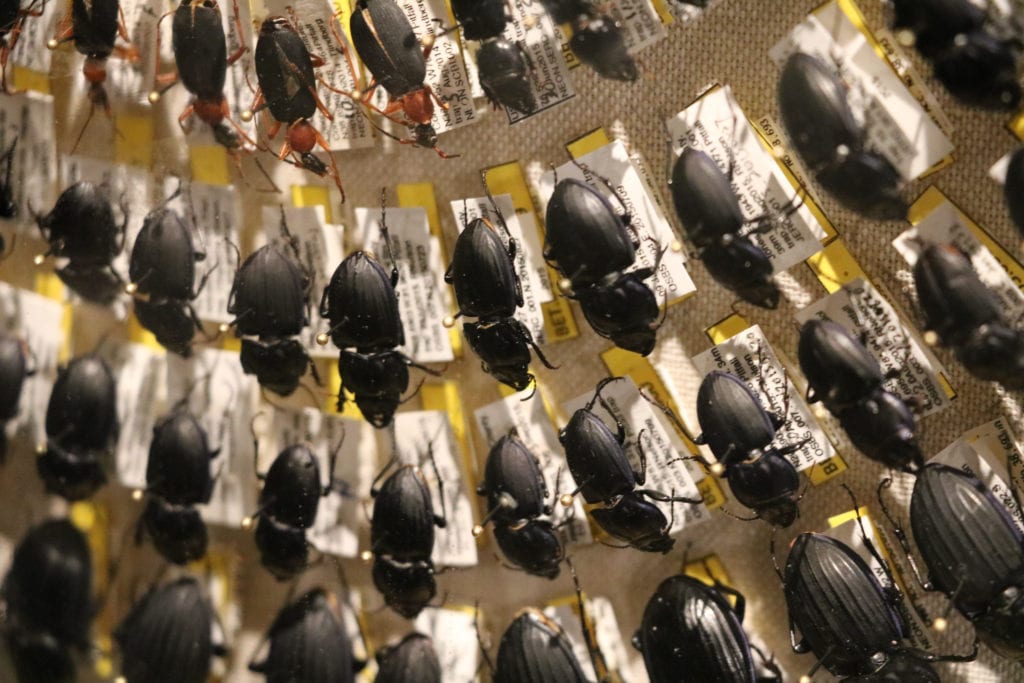
Carnegie Museum of Natural History announced today that the United States Department of Agriculture’s (USDA) Animal and Plant Health Inspection Service (APHIS) has awarded a five-year contract to the Biodiversity Services Facility (BSF), the public service arm of its internationally renowned Section of Invertebrate Zoology. The $700,000 contract continues the museum’s work of screening thousands of raw insect trap samples submitted to the BSF by the USDA for the express purpose of identifying and tracking non-native forest and crop pests.
Specializing in bark beetle identification, project leader Robert Androw screens samples against the USDA’s National Priority Pest List, as well as an ever-increasing target list of invasive species. As part of this work, trap samples are also screened for any newly introduced or previously undetected pests. In the past few years, the BSF program has been instrumental in detecting a number of new pests, recording them for the first time at either the national or state levels, and then alerting the USDA to these potential new problem species.
“We are providing critical support for the USDA’s efforts to identify and protect against potentially devastating invasive species,” says Robert Androw, primary identifier for the BSF. “We’re proud to know our work is valued on a national level.”
The museum’s BSF team, comprised of Androw, James Fetzner, Vanessa Verdecia, Hillary Fetzner, and John Wenzel, will process almost 6,000 trap samples annually for the next five years, collected in regions ranging from Maine to Georgia and as far west as Kansas. Non-priority specimens from the traps are retained by the BSF to enhance and build the museum’s celebrated invertebrate zoology collection, which currently houses over 13 million prepared insect specimens. This is the third such contract awarded to Carnegie Museum of Natural History. The first was in 2008.
